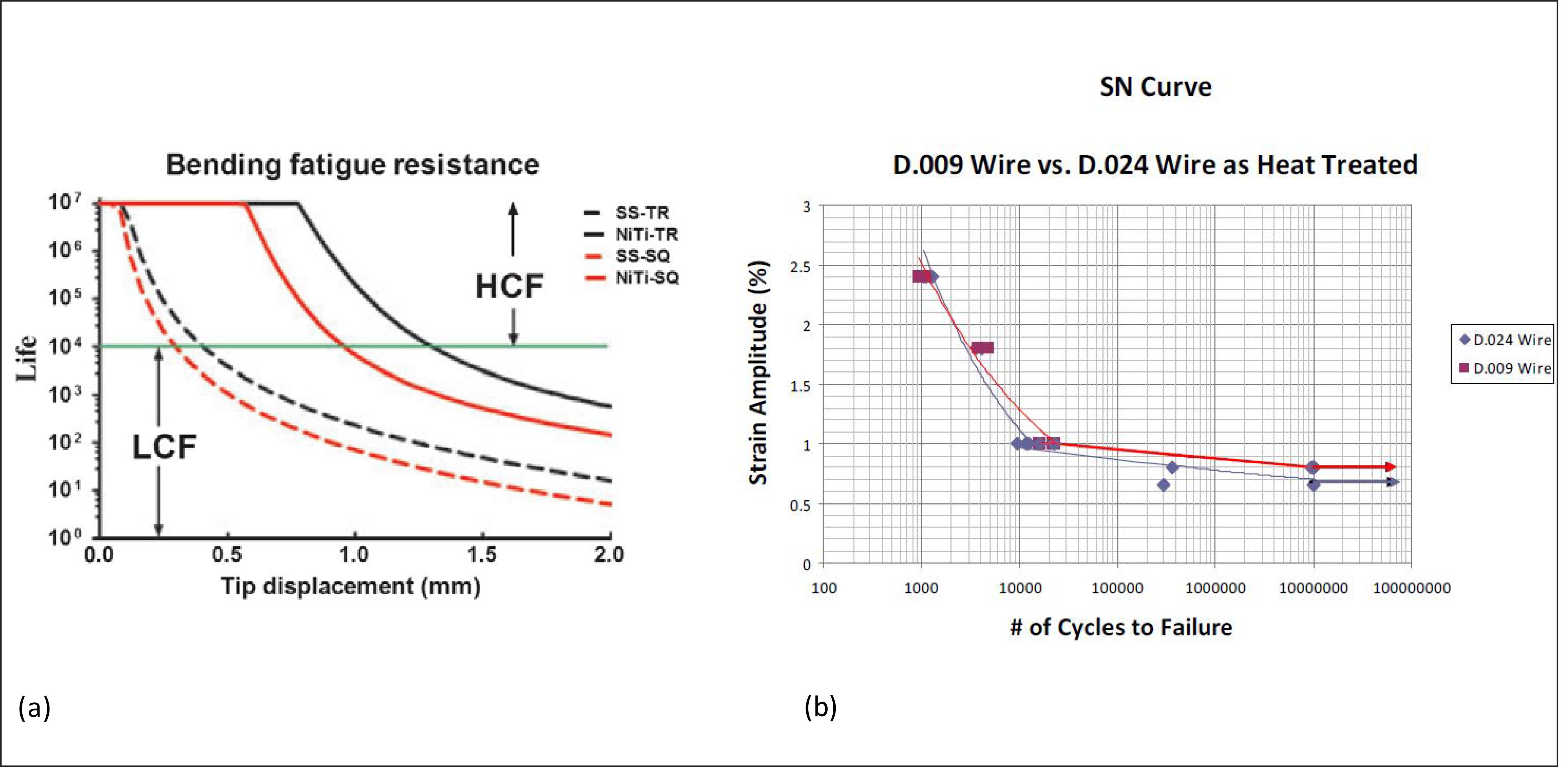AIM:
To evaluate the mechanical behavior of reciprocating endodontic files, comparing nickel-titanium NiTi and stainless steel 316L St.St. 316L as manufacturing material for such instruments.
METHODS:
A three-dimensional finite element model was designed for this study. The simplified instrument model geometry was created on commercial CAD/CAM software. Real strain stress curves of St.St. 316L and NiTi were used in the analysis. Non-linear static analysis was performed to simulate the instrument inside root canal at an angle of 45° in the apical portion, and subjected to torsion of 0.3 N.cm.
RESULTS:
Non-linear NiTi material showed super elasticity and high functionality in such applications. Very high levels of stress appeared in the file at 3 mm from the tip close to yield point.
CONCLUSIONS:
St. St. 316L is not suitable for manufacturing reciprocating instruments. Modeling of the instrument with equivalent circular cross-sectional area did not affect results quality. Reciprocating instruments have short lifespan, thus manufacturers recommend using one file per tooth. Reciprocating instruments are recommended for less experienced dentist.
endodontics; stainless steel; nickel; titanium










